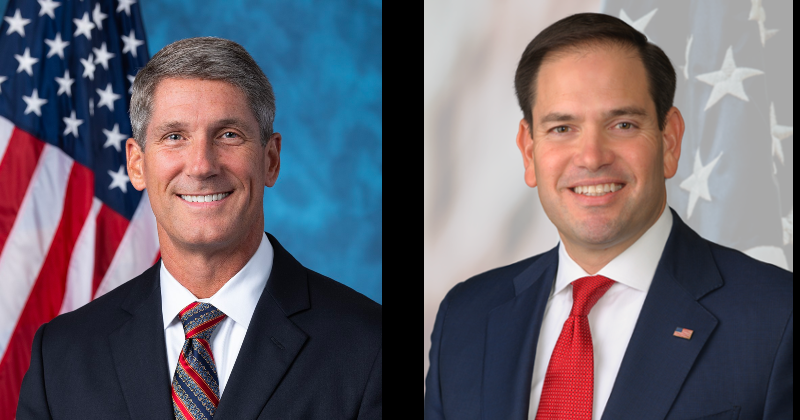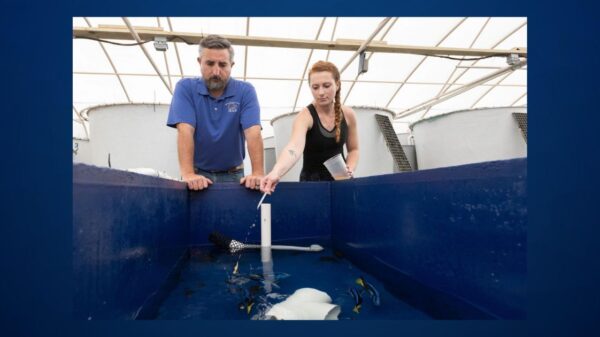Hurricanes Helene and Milton brought high winds, flooding, and damage across Florida. The Florida Department of Agriculture and Consumer Services estimates the total crop and infrastructure losses range from $1.5 to $2.5 billion. The State of Florida has requested federal agriculture disaster designations from the U.S. Department of Agriculture (USDA) to compensate impacted counties.
U.S. Senator Marco Rubio (R-FL), U.S. Representative Scott Franklin (R-FL), and colleagues sent a letter to USDA Secretary Tom Vilsack to ensure Florida producers and farmers are provided critical aid and policy flexibilities as they recover from the storms.
- “These back-to-back major hurricanes have decimated Florida agriculture, our state’s second largest industry, which generates more than $182.6 billion in annual revenue and provides more than 2.5 million jobs.…. As Members of Congress, it is our responsibility to work with USDA to best assist the producers who feed our nation. We appreciate your attention to this urgent matter.”
Joining Rubio and Franklin were U.S. Representatives Kat Cammack (R-FL), Anna Paulina Luna (R-FL), Neal Dunn (R-FL), Brian Mast (R-FL), Gus Bilirakis (R-FL), Mario Díaz-Balart (R-FL), Laurel Lee (R-FL), Michael Waltz (R-FL), María Elvira Salazar (R-FL), Daniel Webster (R-FL), Aaron Bean (R-FL), Bill Posey (R-FL), John Rutherford (R-FL), Darren Soto (D-FL), Byron Donalds (R-FL), Cory Mills (R-FL), Jared Moskowitz (D-FL), Debbie Wasserman Schultz (D-FL), Greg Steube (R-FL), Lois Frankel (D-FL), Carlos Giménez (R-FL), Federica Wilson (D-FL), Sheila Cherfilus-McCormick (D-FL), Vern Buchanan (R-FL), Matt Gaetz (R-FL), and Kathy Castor (D-FL).
Dear Secretary Vilsack:
We write to strongly urge the U.S. Department of Agriculture (USDA) take immediate action to deliver critical aid to agricultural producers affected by recent hurricanes Helene and Milton. These back-to-back major hurricanes have decimated Florida agriculture, our state’s second largest industry, which generates more than $182.6 billion in annual revenue and provides more than 2.5 million jobs.
Hurricane Milton made landfall on Florida’s Gulf Coast just 13 days after Helene and brought high winds, flooding and damage across the entire state. According to the Florida Department of Agriculture and Consumer Sciences (FDACS), the preliminary estimate of total crop and infrastructure losses ranges from $1.5 to $2.5 billion, and the State of Florida has requested federal agriculture disaster designations for impacted counties in response to both storms.
Milton’s path impacted some of Florida’s most productive agricultural areas for aquaculture, avocados, bell peppers, blackberries, blueberries, broccoli, cabbage, cattle, citrus, christmas trees, corn, cotton, cucumbers, dairy, equine, floriculture, grapes, leafy greens, mangos, other animal products, peaches, peanuts, pecans, potatoes, poultry, rice, snap beans, soybeans, strawberries, sugarcane, sweet corn, tangerines, tomatoes, watermelons, and more. Agricultural lands and agribusiness more than 100 miles away from the eye of the storm experienced tornadoes and other devastating effects which compounded losses.
Block Grants:
In 2018, after Hurricane Irma, Congress appropriated relief to Florida agriculture and USDA delivered that aid through a block grant to the state. The State of Florida was successful in getting that aid to those in need quickly and efficiently. During a House Appropriations Subcommittee on Agriculture hearing held on March 9, 2023, USDA Inspector General Phyllis K. Fong was asked about the effectiveness of this block grant and she stated, “[i]n that instance, FSA successfully partnered with Florida to deliver assistance to the citrus farmers.” She went on to say: “I think that is an example, within your own state, where that kind of block grant program can work.” We ask that you support both an appropriation request and authority to deliver the assistance in the form of a block grant to our state.
USDA must work to deliver aid to communities affected by disasters as quickly and efficiently as possible. FSA offices across Florida are still having trouble facilitating disaster assistance programs designed to help after 2022 Hurricanes Ian and Nicole. However, these funds were not in the form of a block grant and as a result, there are hundreds of producers who are still awaiting assistance.
Creating a new disaster program each time funds are appropriated by Congress not only complicates the disaster relief application process, but also delays delivery of critical assistance for the producers who feed our state and nation. Block grants administered by the state expedite disbursement, free up personnel at FSA to efficiently carry out routine programs and provide needed flexibility for states.
As you are aware, the Block Grant Assistance Act (H.R 662 & S.180) was designed to authorize USDA to administer calendar year 2022 disaster relief via block grants. This would give USDA the ability, when reasonable, to issue block grants and expedite payment to producers. This bill is cosponsored by the entire Florida delegation and unanimously passed the House on June 12, 2023. We remain steadfast in our support for standing block grant authority and continue to urge USDA to support this measure giving them additional flexibility in administering disaster programs.
Farm Service Agency:
Unlike most commodity crop programs, Florida specialty crop programs are disaster based and time consuming to deliver. Additionally, permanent FSA staff are needed in the county offices to administer the USDA disaster programs efficiently and effectively. We ask that USDA approve an expedited review of applications and deployment of existing authority for FSA offices to waive requirements that are redundant or unnecessary.
In many other states, straightforward programs like Agriculture Risk Coverage or Price Loss Coverage enable producers to easily enroll and receive payments. These routine programs influence FSA workload metrics and help the agency prioritize personnel and resources. However, the situation differs significantly in Florida with specialty crops. Most of our programs are disaster-based, which are notably more time-consuming to administer and manage. These factors are not accounted for when allocating staff. As a result, our FSA county offices are not adequately staffed and have not finalized Emergency Relief Program (ERP) and Emergency Conservation Program (ECP) payments to producers for 2022.
Disaster Appropriation:
Per USDA data, losses in agriculture across calendar year 2022 totaled $14 billion, yet Congress only appropriated $3.7 billion in relief to our nation’s producers in the December 2022 omnibus. We recognize this led to difficult decisions on how to distribute the disaster assistance. However, the “Progressive Payment Factor” being applied to ERP 2022 payments was an unnecessary and harmful program flaw that has resulted in the producers who suffered the most severe losses receiving pennies on the dollars in assistance. Federal disaster assistance is never meant to make producers whole, but Congress has a duty to prevent a failure like this from occurring again. We look forward to working with USDA to ensure adequate funding for 2023 and 2024 losses.
Improved Crop Insurance Options:
Crop insurance is another tool USDA can use to improve the farm safety net alongside these suggestions for improving delivery of FSA disaster programs. The 2024 Farm Bill that passed the House Committee on Agriculture includes language to improve crop insurance options for specialty crop growers, including the Temperature Endorsement for Multi-Peril Policies (TEMP) Act (H.R.6186 & S.3253).4 Many of Florida’s specialty crop growers do not have insurance on their crops because of the high price of the premiums and low payouts from claims. The Florida Delegation will continue its efforts to work with USDA to prioritize improving crop insurance options for growers as outlined in the 2024 Farm Bill passed by the House Committee on Agriculture earlier this year.
To ensure USDA and Congress are equipped to provide adequate support for producers, please respond to the following questions and provide the following documents and information no later than November 29, 2024.
- A statement of agency policy for utilization of block grants within USDA disaster-based programs.
- A document detailing calendar year 2024 calendar year losses up to October 29, 2024, and a budgetary request to the House and Senate Appropriations Committees to ensure adequate funding of relief programs.
- An updated document detailing FSA county office leadership, and how many FTEs are employed at each.
- A report on the number of FTEs Florida FSA offices need to efficiently administer a disaster-based program to Florida producers.
- A plan for strike team deployment to Florida FSA offices including timeline, number of employees and where these teams will be placed.
As Members of Congress, it is our responsibility to work with USDA to best assist the producers who feed our nation. We appreciate your attention to this urgent matter.





















